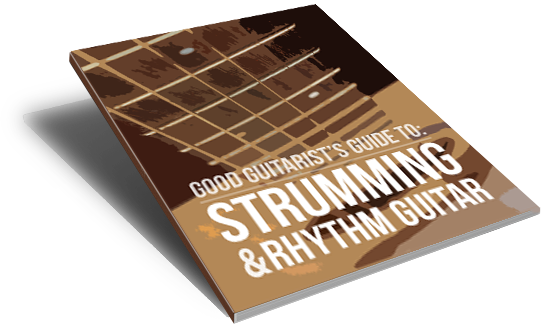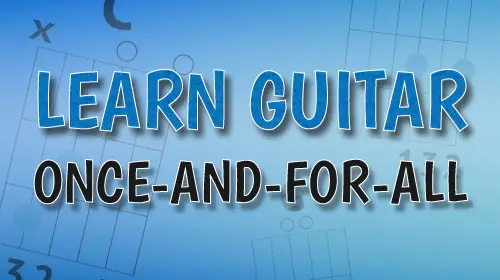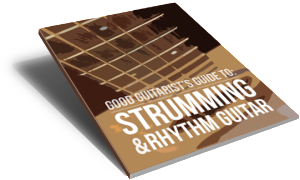7 GOOD PRACTICE HABITS For Immediate Improvement on Guitar!
In this lesson I’d like to go over 7 habits holding you back on guitar and replace them with 7 good habits and exercises to fix them.
We’ll discuss bad guitar habits to avoid, like only ever sitting down while you play, not learning about your gear, obsessing over gear. Go over guitar tips and tricks and shortcuts like recording yourself, learning basic theory, and some guitar tips for intermediate players too!
TABLE OF CONTENTS
- 0:00 – INTRO
- 0:48 – RECORD YOURSELF PLAYING
- 4:04 – LEARN ABOUT YOUR GEAR
- 6:57 – PLAY WITH OTHERS (ANYONE!)
- 10:03 – STAND UP AND PLAY
- 11:49 – BE HAPPY WITH THE GEAR YOU ALREADY HAVE
- 14:12 – KNOW SOME BASIC MUSIC THEORY
- 16:28 – DON’T GET CARRIED AWAY WITH THEORY
The most important thing, that will get you the furthest the fastest, is to record yourself playing and listen back. Analyzing your own playing will help you identify weaknesses, and you’ll be able to focus your practice time on things that matter and get the most out of it. This is the fastest way to improve your rhythm, groove, timing, dynamics, volume control, inflections (hammer ons, pull offs, slides, etc), and reduce unwanted noise like string squeaks.
There’s how you draw the sounds out of your instrument. So if you’re on an acoustic guitar, that could mean learning how plucking near the bridge makes a brighter sound and plucking near the neck makes it a bit mellower. If you’re if you’re playing electric guitar, it could mean knowing how the volume of your guitar interacts with the volume on your amp, or finding which type of overdrive pedal best suits your setup. You should also know how to maintain your gear so it always sounds its best.
One of the biggest shortcuts for any musician, playing any type of instrument is to play music with others. And I know that it’s tough, especially for older beginners. I personally didn’t play music until I was 17. Playing with others helped me catch up!
Most people tend to sit when they practice. And that’s fine, until you get invited to your friend’s house and they ask you to bring your guitar. You get there and they only have a stool, but you’re used to sitting in this particular chair, so you try to play but the guitar is in a different orientation than what you’re used to. Or maybe you go play a show, and you’re standing up with your strap, but you aren’t used to it because you spent 99% of your practice time sitting down and now the guitar suddenly feels so different when you’re standing.
At the start of the pandemic I had really bad GAS… Gear Acquirement Syndrome. And the reason why this can be bad, is because you can fall into a trap where you spend more time looking at and daydreaming about gear than you spend learning how to use the gear you already have.
Music theory is like basic math… like 2+2 = 4 kinda stuff.. If ANYONE spent a week around professional musicians in a studio or writing songs, they’d pick up at least a couple things… and you compound that over the course of years and you get a huge base of knowledge that we could call “APPLIED music theory”
Instead of just learning all of your scales and modes in this dry way, memorizing it and then when you actually go to play, you don’t know what to do with them. You know, you’re better off just taking a little bite of theory, learn something, have fun with it and move on from there. You know, it’s about finding balance – you definitely want to know some theory, but don’t get too carried away with theory for the sake of theory – you need to apply it and use it to make you better at music.


